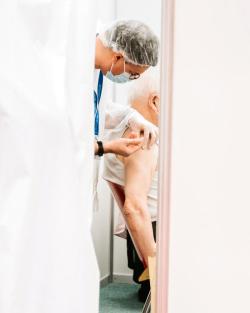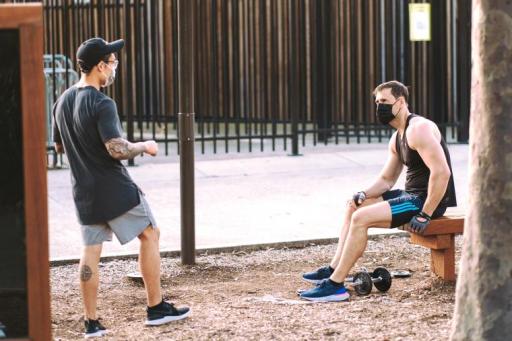- Managing your Practice
-
- Your Benefits
-

Introducing the ultimate Club MD experience
From work to play, and everything in between, we provide you with access to hundreds of deals from recognizable, best-in-class brands, elevating every facet of your life – from practice supports to entertainment, restaurants, electronics, travel, health and wellness, and more. Your Club MD membership ensures that these deals are exclusive to you, eliminating the need to search or negotiate.
Welcome to the ultimate Club MD experience. Your membership, your choices, your journey.
-
- Advocacy & Policy
-
- Collaboration
- News & Events
-

Stay Informed
Stay up to date with important information that impacts the profession and your practice. Doctors of BC provides a range of newsletters that target areas of interest to you.
Subscribe to the President's Letter
Subscribe to Newsletters
-
- About Us
-

How the COVID-19 vaccines work and what they protect against
April 26, 2021
Together for Health
All eligible British Columbians over the age of 18 are able to register for their vaccinations, bringing us that much closer to the light at the end of the tunnel. But as we all line up to get our shot, it’s important to understand what exactly the vaccine protects against, how it works, and how long you’re protected for.
How do the vaccines work?
 Both the Pfizer and the Moderna vaccines are mRNA vaccines which provide instructions to cells in your body and teach them how to make a specific COVID-19 protein. Your immune system then learns to recognize and respond to that specific protein and fight the COVID-19 virus if you are exposed to it.
Both the Pfizer and the Moderna vaccines are mRNA vaccines which provide instructions to cells in your body and teach them how to make a specific COVID-19 protein. Your immune system then learns to recognize and respond to that specific protein and fight the COVID-19 virus if you are exposed to it.
The AstraZeneca and Janssen/Johnson & Johnson vaccines are viral vector vaccines which use an inactive and harmless virus to produce COVID-19 proteins in your body without causing the disease itself – just like the annual flu vaccine. Similar to mRNA vaccines, the production of this protein triggers an immune response that helps recognize and fight future infections.
Do the vaccines prevent us from acquiring or spreading COVID-19?
 The vaccines considerably lower your chance of getting COVID-19 if you come into contact with the virus. Clinical trials show that only 0.04% of people who are vaccinated with the Pfizer and Moderna vaccines got the virus, with the AstraZeneca rate a bit higher. Even the first dose of the vaccines offer great protection, once the first 2-3 weeks have passed, against serious illness, hospitalization, and death. On the rare occasions where you might still get the virus, symptoms should be much milder. Doctors encourage everyone to get their vaccination at their earliest opportunity – it is far safer to have the vaccine than to risk getting COVID-19.
The vaccines considerably lower your chance of getting COVID-19 if you come into contact with the virus. Clinical trials show that only 0.04% of people who are vaccinated with the Pfizer and Moderna vaccines got the virus, with the AstraZeneca rate a bit higher. Even the first dose of the vaccines offer great protection, once the first 2-3 weeks have passed, against serious illness, hospitalization, and death. On the rare occasions where you might still get the virus, symptoms should be much milder. Doctors encourage everyone to get their vaccination at their earliest opportunity – it is far safer to have the vaccine than to risk getting COVID-19.
Once vaccinated, it is still possible to transmit the virus to others, which is why everyone must continue to take precautions – physical distance, wash your hands, wear a mask, and avoid gatherings.
How long does the COVID-19 vaccine protect you for?
While it is unknown how long we’re protected once we’ve had the COVID-19 vaccine, initial evidence suggests that protection is long-lasting, however it is expected that booster shots will be required to strengthen immunity in the future. We can compare this to the annual flu shot, in which new vaccines are developed to protect against changing strains of influenza.
We all want a return to “normal” life and the way for us to do that – and do it as quickly as possible – is to get vaccinated. So reaching herd immunity, where at least 60-70% of us are vaccinated creating an environment where the virus has very little room to spread, is how we’ll get there.
For more information on the COVID-19 vaccines in BC, visit the BC Centre for Disease Control’s COVID-19 Vaccine page or visit Doctors of BC’s FAQs for patients.




